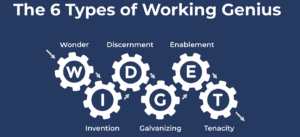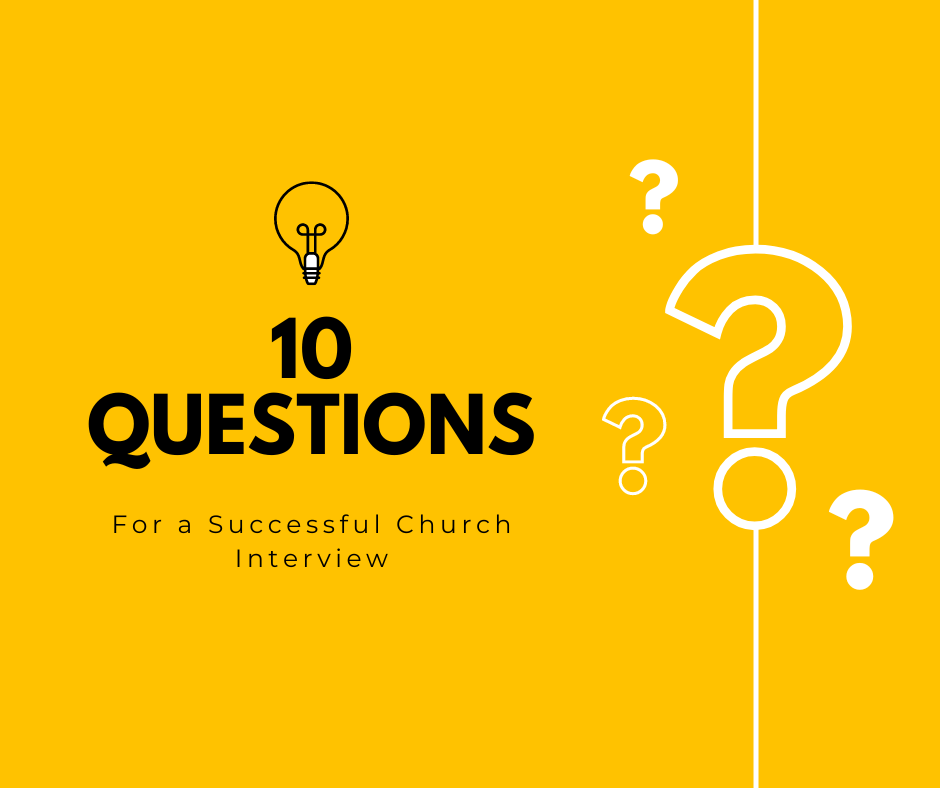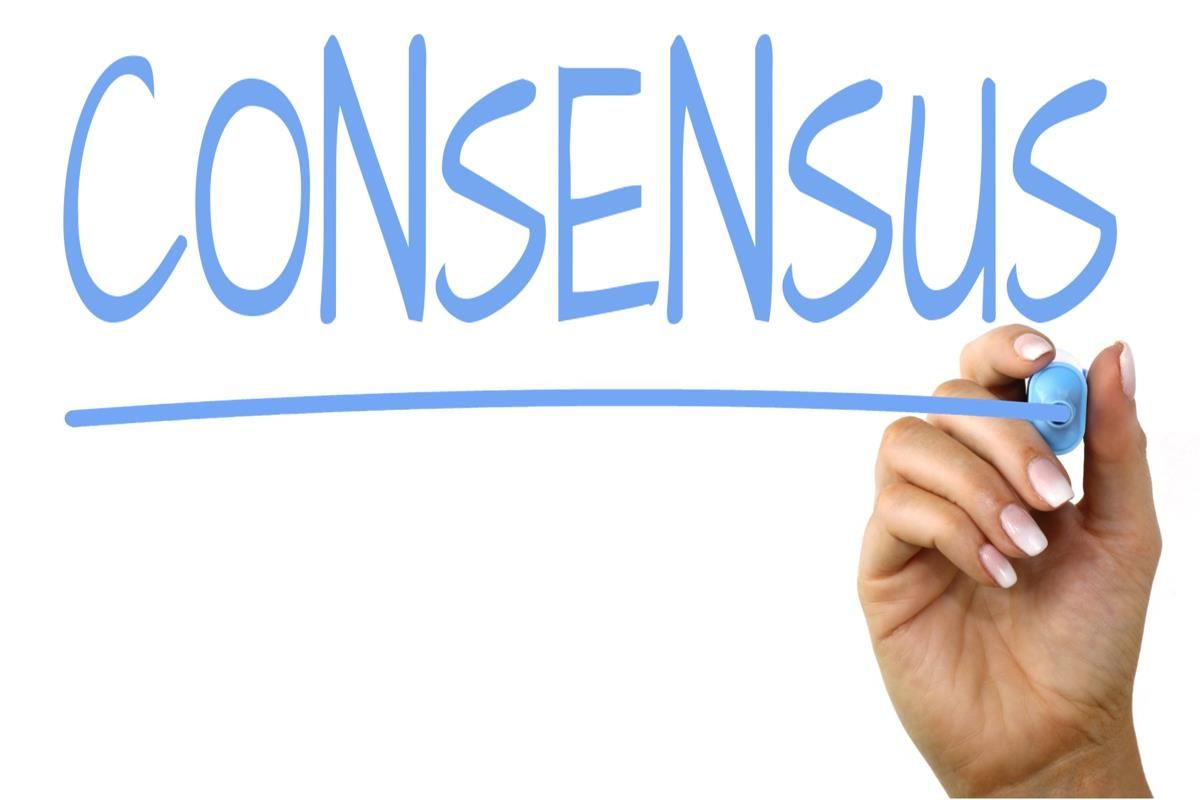What is Working Genius and How Does it Work for You?
What is Working Genius and How Does it Work for You?
Over the past eighteen months, our church has been revising and rewriting the church bylaws. This has been an arduous, complicated process that took much longer than anyone expected. The team that took on the project was coed and economically and generationally diverse. We expected to have disparate opinions and different ways of looking at many of the same issues. We expected to have different strengths and weaknesses as we worked through this important project.
But there was one thing we didn’t expect– some of us felt excited during the same phases that left others feeling overwhelmed and frustrated. For several of us, the project’s initial phase was the most exciting– we loved asking questions and defining what needed to happen. The possibility of creating a new document for our church that would be used for years to come was so inspiring! The lack of structure and organization during this time felt time-consuming and unproductive for others. Likewise, some of us felt energized toward the end of the project as we saw all of the hard work come together, and we began to encourage our church about some new directions and ideas. Others were ready to move on to the next project and wished we could move quicker to the next thing.
Did these differences mean that our team was unsuccessful? Not at all. These differences are necessary and beneficial! On a recent episode of the Replant Bootcamp podcast, Jimbo and Bob walked listeners through a new tool called “Working Genius” by Patrick Lencioni. Though the premise may sound similar to other personality tests and quizzes, the “genius” behind Working Genius is finding out where your team’s skills lie and which parts of a project line up with those specific gifts.
The Good News: We’re All Geniuses!
One of the best aspects of Working Genius? We are all geniuses! It’s true– we all have an area of uniquely talented gifting. We are more fulfilled and happier when we can work within what we are naturally good at. In addition to seeing what our skills and gifts say about us, we can also find out where we fit within our team and project phases.
The Six Types of Working Genius
According to Lencioni, the six types of Working Genius are:
- The genius of wonder: The natural gift of pondering the greater potential and opportunity in any situation. People gifted in this area love asking questions and feel creative in ambiguity.
- The genius of invention: The natural gift of creating original and novel ideas and solutions. People gifted with this genius find joy in taking the challenges and generating solutions. They enjoy innovating from scratch and love a blank whiteboard piece of paper with which they can brainstorm.
- The genius of discernment: The natural gift of intuitively and instinctively evaluating ideas and situations. People gifted in this area are good curators of what’s going on around them and can recognize patterns. They know how to connect the dots and give people good feedback across a broad range of topics.
- The genius of galvanizing: The natural gift of rallying, inspiring, and organizing others to take action. People with this genius love to get things moving. They’re great at pushing people out of their comfort zones, inspiring them to get started, and moving them in the right direction.
- The genius of enablement: The natural gift of providing encouragement and assistance for an idea or project. This genius is people-oriented– they want to help realize a vision and provide the support needed to move.
- The genius of tenacity: The natural gift of pushing projects or tasks to completion to achieve results. People gifted in this genius are task-oriented. They love to take things across the finish line, and they ensure that a project is going to have the impact it’s supposed to have.
Project Stages
Every project has a workflow structure that follows a specific pattern. The initial stage, where we are asking questions and answering with possible solutions, is called “ideation.” This is the stage where people with the workplace geniuses of Wonder or Invention will feel energized, focused, and most productive.
In the next stage, we have answered our questions and have decided on a possible course of action. But we are still getting ready for the next step. We need people whose workplace genius is Discernment or Galvanizing to help us move into activation. They will help us create “buy-in” for the ideas and ensure we move in the right direction. The people with these geniuses will be excited to engage others in the work and cooperate with every team member.
Finally, after we ask and answer all the questions, cohesively move toward solutions, and ensure we are heading in the right direction, we are ready for the final stage of the project: Implementation. In this stage, people with the working genius of Enablement or Tenacity will find joy in checking off boxes, encouraging others in their work, and getting the project to completion.
The Bad News: We’re Not Always Geniuses!

Lencioni states that each person has two geniuses that fit them well– these strengths allow them to feel the most joy while at work on a project. Each person also has two Working Competencies. These are the areas where we can perform the work, and we may even find satisfaction in it. While we might be somewhat gifted in these areas, they do not bring us joy. We also have two areas that are working frustrations. These areas bring us– you guessed it– frustration. These are the areas where we just really don’t enjoy this aspect of a project.
Unfortunately, we are not always able to avoid those Working Frustrations. As Replant Pastors, we are often called to work on a project from start to finish, regardless of which stage of the project brings us joy. So, how do we work within those moments of frustration without getting… frustrated?
Finding Einstein

There is this temptation, especially as a Replant Pastor with limited resources and limited people, to believe that you have to do it all. Everything rests on you. Each project is for you to accomplish from start to finish, whether rewriting bylaws or redoing the children’s classrooms.
Pastor, here is some truth: You can’t do it all. If you thought you could, you would quickly discover that road leads to exhaustion, discouragement, and burnout. (See last week’s podcast episode and blog for some tips to avoid burnout.) You need other people. You specifically need other people who aren’t just like you. You need other geniuses in the room!
I can tell you from experience it isn’t easy to work with someone with a different genius. If you have the genius of Wonder, you’re going to frustrate someone with the genius of Tenacity. While you’re asking all the questions, they’ll just want to push forward to the part where they can start doing something. If you have the genius of Invention, you may feel unsupported by someone with the genius of Discernment who doesn’t think your idea is a perfect one.
But we must recognize that those differences, however frustrating they may be, allow us to work better. Romans 12:3-8 reminds us that God, in His grace, gives us different gifts– but just as important, it reminds us that we aren’t to think more highly of ourselves because of our specific gifts. We cannot envy someone else’s unique gifts or judge their gifts as somehow less than ours.
I recently attended a symphony concert with my daughter. As we listened to the incredible music, I never thought, “Man, I wish this was just 150 trumpets all doing the same thing.” As much as I might love to hear the trumpet, the music was beautiful because every instrument was playing its part at the perfect time and volume. The trumpet player wasn’t jealous of the violinist because it took both of them to create the symphonic sound. Likewise, the trumpet player didn’t look down on the harpist because a trumpet couldn’t make that sound, which was necessary for the piece.
Find the other Einsteins in your congregation with a genius that is different than yours– and then work with them on projects to make sure you’re all playing your part cohesively and beautifully for the Gospel.
If you want to take the Working Genius test or purchase it for your team, you can find more information here: https://www.workinggenius.com/about. And if you’re interested in other resources for team building and team strategies, check out our podcast episodes on Leadership Judo by searching the term or by looking at Les McKeown’s work on Predictable Success.
















